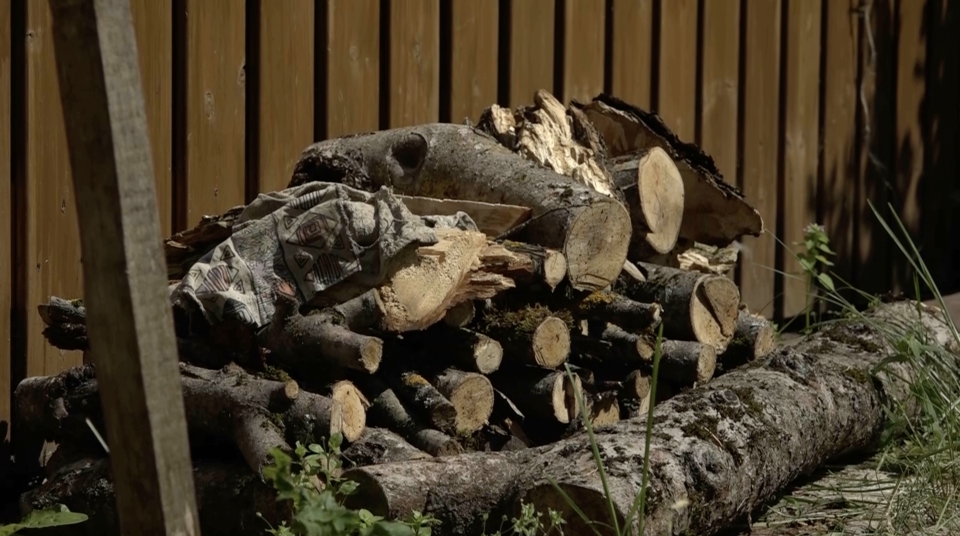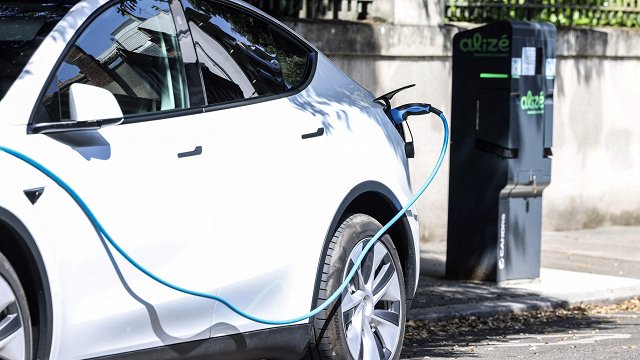The new aid rules stipulate that aid would apply to households heated centrally, with gas, electricity, wood, briquettes, or wood pellets.
Electricity
For households that use electricity in heating, a ceiling on electricity prices above which households would be compensated has been set. If the price of electricity exceeds EUR 0.160/kWh, the State compensates for 50% of the electricity price, while the amount of compensation does not exceed EUR 0.100/kWh.
The aid to cover electricity costs is targeted at households using electricity for heating and therefore the monthly electricity consumption of such households exceeds 500 kWh and the partial compensation for the electricity price will be applied to electricity consumption above 500 kWh but not more than 2000 kWh.
The household must submit an application to the local government, accompanied by an electricity invoice for the specified aid period – October 1, 2022, to April 30, 2023.
Gas
Household gas users (including apartment owners and tenants) whose average monthly consumption of natural gas over a period of 12 months is more than 221 kWh/month or 21 cubic meters/month, will receive compensation at 50% of the price increase. Given that the estimated difference in natural gas prices between the previous and the next heating season is EUR 70, the aid for the next heating season should be EUR 35 per megawatt-hour (MWh) or EUR 0.035/kWh without VAT. The aid will apply between July 1 to April 30.
For natural gas users who have not been users of natural gas for the full 12 months, the average consumption shall be determined on the basis of the estimate, specifying it according to actual consumption at the next conversion period. That aid will cover a total of approximately 65,000 households and will be provided for the period from July 1 2022 to 30 April 2023.
The compensation invoice, together with the calculation — data showing how the invoice amount arises — shall be submitted by the gas trader to the Construction State Control Office (BVKB) by the specified month date.
Central heating
For the period from October 1, 2022 to 30 April 2023, the reduction in district heating service charges applied to household users to cover the increase in heating costs is set at 50% of the difference between the thermal energy tariff approved by the Public Service Regulatory Commission (SPRK) or the relevant local government and the median of the thermal energy tariff €68.00/MWh.
Therefore, if the heating energy tariff charged by SPRK or the municipality will be EUR 198/MWh in the current heating season, the calculation of the amount of compensation will be (198 – 68) x 50% = EUR 65/MWh. Consequently, in a given municipality, the bill would be charged at a rate of 68 + 65 = 133 €/MWh.
Where district heating is provided to household users by a supplier whose tariffs have not been approved by SPRK or the local government, the reduction in the cost of the district heating service without VAT shall be set at 50% of the difference between the applicable price of heating energy, excluding VAT and the median of the heat tariff of EUR 68,00/MWh, but not more than EUR 300/MWh, applicable during the month.
The aid period for compensating the price of electricity shall be October 1, 2022 to April 30, 2023, equivalent to the generally accepted heating season.
The compensation invoice, together with the calculation — data showing how the invoice amount arises — shall be submitted by the provider of the municipal heating service to BKVB by a specific date of the month.
Wood pellets and briquettes
The price threshold for pellets and briquettes eligible for compensation is set at EUR 300/tonne. Equivalent to the other aid types, the increase in the cost of pellets or briquettes would be compensated for 50% if costs exceeded EUR 300/tonne, but the sum for compensation would not exceed EUR 100/tonne.
One household has a consumption aid threshold of 10 tonnes of briquettes or pellets, calculated on the basis of the average area of households heated with granules/briquettes.
Thus, if pellets/briquettes were purchased at EUR 450/tonne, the State would compensate EUR 75 and the household share would be EUR 375/tonne. If the pellets were purchased at EUR 600/tonne, the household's covered share will be EUR 500/tonne and the state will compensate for EUR 100.
A household user who has purchased pellets or briquettes shall refer to the local government with supporting documents in the same way as the housing allowance to the social service, which takes a decision on the granting of compensation. The State then returns this compensation to the municipality.
The compensation applies to the purchase of pellets/briquettes from 1 May 2022 to 30 April 2023. The period of receipt of the aid in the municipality will be 1 October 2022 until 30 April 2023.
Firewood
The draft law also provides for support for the purchase of firewood for households. Equivalent to the other types of aid, the increase in the cost of wood would also be compensated at 50% if costs exceeded EUR 40/cubic meter but not more than EUR 15/cubic meter.
The compensation for wood is extended to purchases of wood from 1 May 2022 to 30 April 2023. In turn, the period of receipt of the aid in the municipality will be from 1 October 2022 until 30 April 2023. To apply for the aid, the household must turn to the local government with a receipt of purchase. Those who have not saved the documents certifying purchase will be able to apply for a one-off aid of EUR 60.
Administrative process
Support for partial covering of electricity, pellet, briquettes, wood costs will be implemented through local governments, using local government-designated departments that will advise citizens on support mechanisms and the submission and registration of necessary documents.
The authority determined by the local government will ensure the registration, processing, and storage of the application for household support and the attached documents, using the local government electronic services portal “epakalpojumi.lv” and the local government social assistance and social services administration application “SOPA”.
In order to ensure registration, processing, and storage of the application for support households and the documents attached thereto, changes and developments will be made to the e-services portal and the administration application, including a self-certification on the existence of a heating system with electricity, pellets, wood or briquettes.
The following data will be recorded electronically in the e-service portal and the administration application:
- the given name, surname, personal identity number, telephone number, or e-mail address of the household (housing) owner, co-owner or tenant, credit institution or postal settlement system account number to which the support for the household is to be transferred;
- the applicant's passport or identification (ID) card is presented for recording the data;
- the application of the owner, co-owner or tenant of the household (housing);
- a copy of the document certifying the ownership of the household (housing) or the right of use, presenting the original if the relevant information is not at the disposal of another institution;
- a self-certification regarding the existence and use of the corresponding heating system for heating the household (housing);
- proof of payment document(s) in one or more applications for the purchase of the corresponding heating materials;
- self-certification in the form of a note that the applicant has applied for only one support mechanism and other household members have not submitted an application to the household for support for the household mentioned in the application.
For the bill to enter into force, it will still have to be viewed by the Saeima, which could do so at its meeting on 11 August. It is expected to enter into force on the day following the announcement.
It is also foreseen that, following the adoption of the Law, informative materials will be developed in the Saeima regarding all the support instruments provided for in the draft law so that these information materials can be used by local governments in communication with residents.






























